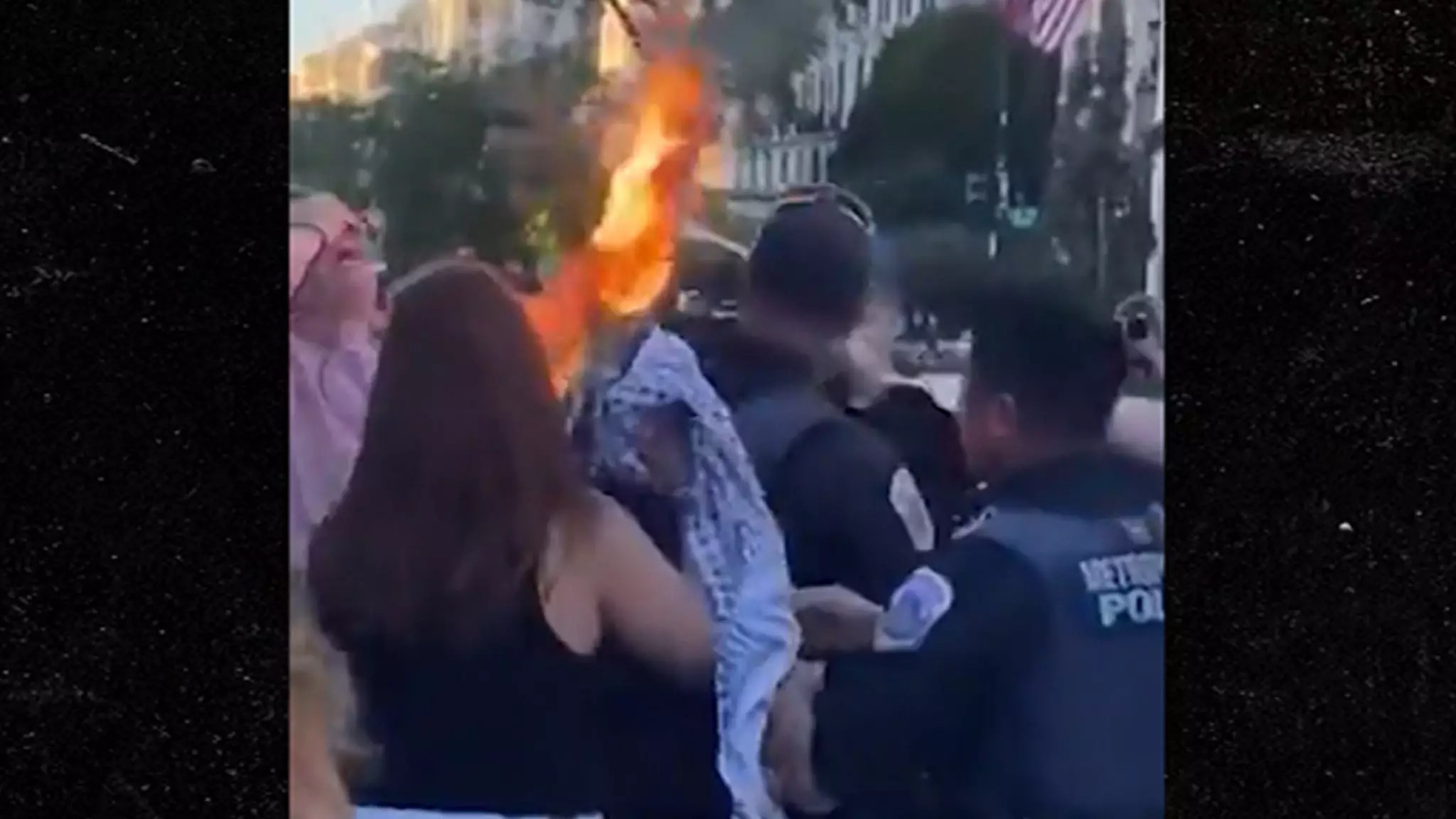The recent protest outside the White House, aimed at raising awareness of the ongoing Israel-Hamas conflict, took a disturbing and unprecedented turn when a photojournalist reportedly set himself on fire. This incident, involving Samuel Mena Jr., served as a grim reminder of the extreme measures some individuals may take when feeling helpless about global crises. The protest, which began as a demonstration advocating for an end to the violence in Gaza, quickly transformed into a scene filled with horror and urgency, as Mena’s act of self-immolation shocked fellow protesters and bystanders alike.
In the context of the ongoing conflict, where thousands of lives have been lost, the protests underscore the collective anguish felt by many regarding the humanitarian crisis in Gaza. In the aftermath of escalated violence following the attack by Hamas on October 7, 2023, activists took to the streets to voice their condemnation of the military operations that have led to massive casualties, particularly among civilians in Palestinian territories. The stark figure of up to 40,000 Palestinians reportedly killed highlights the urgency that activists feel, leading to increasingly desperate calls for international intervention.
However, as evidenced by Mena’s tragic act, the emotional toll of such conflicts often manifests dramatically. This incident raises critical questions about the psychological impacts of prolonged conflicts and the responsibilities of societies to tend to the mental health of their activists. Mena’s self-immolation, which bought significant media attention momentarily, risks overshadowing the fundamental issues being protested. This incident could evoke feelings of despair and hopelessness rather than constructive activism, potentially deterring future participation in peaceful protests.
Engagement in social movements often requires navigating an intensely charged environment, where frustrations can mount to a boiling point. While such acts may be intended to draw attention to serious issues, they can alienate potential allies, widening divides rather than fostering understanding. Furthermore, the reactions from law enforcement and emergency services highlight systemic challenges in managing public protests that can turn dangerous.
This chaotic event prompts a deeper reflection on the need for compassion in activism. Rather than taking desperate actions, it may be crucial to find ways to channel anger and sorrow into positive change. Organizers of protests should perhaps consider implementing mental health support for participants, recognizing the weight of injustice that many carry on their shoulders. In a world where conflicts often create dire humanitarian crises, fostering communication and understanding across divided groups may genuinely serve to honor the efforts of those who have suffered.
As the cries for justice continue to fill the streets, it is imperative to remember the value of life, the importance of mental health, and the power of peaceful protest. In doing so, we might ensure that the fervor of activism does not turn into despair, but instead becomes a guiding light toward resolution and healing.







Leave a Reply